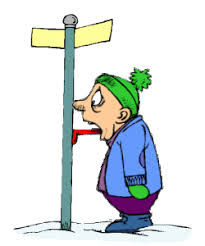The French Consonant "R"
The sound represented by the letter "R" in French is very different from what it represents in English. In French, the sound is represented by the IPA symbol /ʁ/
, which is a voiced, velar (or uvulaire), fricative.
How to Articulate French "R"
It may surprise you, but French "R" is closer to the velar consonant /g/ than it is to English "R". It's too bad they are represented by the same letter since it gives the impression they are similar sounds, which simply isn't true.
The relationship between /g/ and /ʁ/ is very similar to the one that holds between /d/ and /z/. In both cases, the place of articulation is the same, but the manner is different (a stop becomes a fricative). Try the following:
Technique #1
a) pronounce /d/, then slowly soften the contact between your tongue and teeth until you produce a /z/
.
b) try the same thing with /g/ and /ʁ/. Pronounce /g/ twice, then soften the contact between the tongue and the velum. Doing so will lead you to the correct articulation of French /ʁ/
.
Once you can produce /ʁ/, try the same procedure in an actual word.
c) start with the French word for "hinge", gond [gõ]. Pronounce this two times, then on the third and fourth time, soften the contact to make a fricative. This will lead to the correct pronunciation of rond [ʁõ]
.
Technique #2
First, pronounce /t/ and [gɛ] separately. Next, pronounce [gɛ] immediately after /t/ (all in one syllable). Since the combination [tg] is a difficult one to articulate, the /g/ naturally becomes a fricative (as you move toward the vowel). The result of this exercise will be the correct pronunciation of the word très!
Il fait froid!

Probably the most difficult context for French "R" is when it precedes the semi-consonant /w/, e.g.: froid [fʁwa]. Here, the tendency is for learners to drop the /ʁ/ completely. That's not an option! There are many French word pairs that are distinguished by the presence/absence of /ʁ/ before /w/. For example:
froid [fʁwa]
versus foie [fwa]
trois [tʁwa]
versus toi [twa]
croix [kʁwa]
versus quoi [kwa]
If you want to say "I like the cold", say [ʒɛmləfʁwa] and NOT [ʒɛmləfwa] because that means "I like liver" (which can't be true!).
Note finally that unlike English "R", French "R" DOES NOT involve lip rounding.
Spelling of French "R"
When the consonant /ʁ/ is pronounced, it is represented by the letter "R", e.g.: mer [mɛʁ], faire [fɛʁ], partirai [paʁtiʁe].
However, there are many cases where written "R" doesn't represent anything at all, such as:
a) infinitives in -er, e.g.: aller [ale], manger [mãʒe], etc.
b) in most noms and adjectives of more than one syllable, e.g.: pionnier [pjɔnje], léger [leʒe], irrégulier [iʁegylje] (mais amer [amɛʁ])
c) the words monsieur [møsjø]
and gars [ga]
R at the End of a Word
When /ʁ/ follows a consonant at the end of a word, several pronunciations are found (deletion, addition of schwa or devoicing).
If another word follows, then you can either:
a) drop the /ʁ/, e.g.: centre d'achat = [sãtdaʃa]
or,
b) add schwa to break up the string of consonants, e.g.: centre d'achat = [sãtʁᵊdaʃa]
Both pronunciations are acceptable.
If pronounced "R" appears at the very end of a rhythm group, then it is devoiced (remember that /ʁ/ is normally a voiced consonant), e.g.: C'est le centre = [sɛləsãtχ]
(the symbol /χ/ is a voiceless velar fricative).
Variation
The voiced velar (or uvulaire) fricative described above (i.e.: /ʁ/) is the main variant in standard French, e.g.: très [tʁɛ]
. However, you are likely to encounter other kinds of "R" as well, including:
a) apical /r/
This involves tapping the tip of the tongue behind the top teeth. Apical "R" is very similar to consonant in the middle of the English word better.
b) apical trill
, historically associated with Montreal French. This is also found in Spanish.
c) uvular trill
This is like a rolled version of the standard variant that involves rapid movement of the uvula. This "R" is particularly frequent at the beginning of words (in standard French as well).

• Don't pronounce the "R" in the word Monsieur
• Avoid lip rounding when articulating "R" (that's an English thing!)
• Don't forget that /ʁ/ is the fricative version of /g/